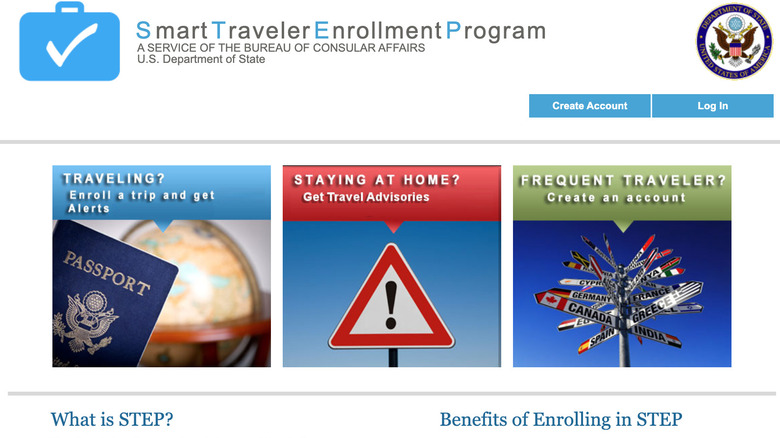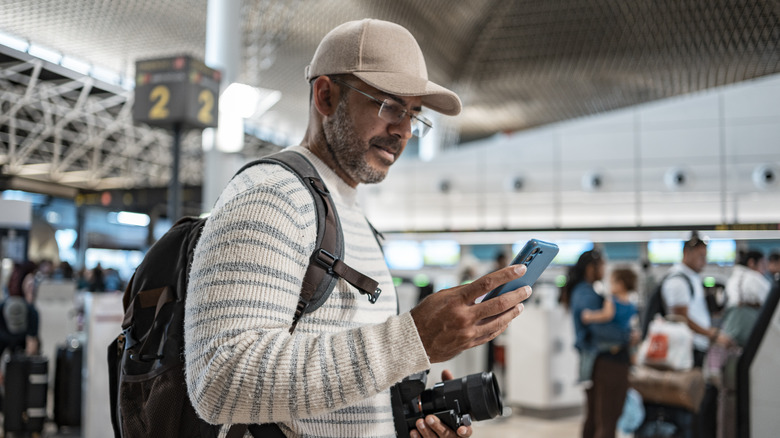Planning
Lexi Kassler
We all wish traveling didn’t come with risks, but this isn’t a realistic expectation when leaving your home country. Unfortunately, life happens and people make mistakes. Maybe your passport gets lost or stolen in Italy, or maybe you get in trouble for public intoxication in Mexico. And then there are more serious situations that can occur outside of your control, such as political unrest, mass protests, and even military coups.
Sometimes, you’ll even come face-to-face with situations where you need to get home or you need help, but local authorities can’t provide support, as many travelers discovered during COVID-19 shutdowns.
These are just a few examples of why it’s important to establish a connection with your country’s embassy whenever you are traveling internationally. Luckily, the steps to do so are incredibly straightforward — no crazy bureaucracy or payment is required. You can simply sign up with the Smart Traveler Enrollment Program (STEP). What is STEP? We have all the details and how to sign up.
Here’s how STEP helps protect travelers

Adene Sanchez/Getty Images
The State Department’s STEP program is a free resource for U.S. citizens and nationals venturing abroad. Regardless of where you’re going, whether it’s Europe or the Middle East, this free service is essential for travelers to stay up to date about the goings-on in the country where they are traveling. STEP allows travelers to register their international trips with the nearest U.S. embassy or consulate and enroll in an automated system that delivers essential information via text and email.
This information typically consists of updates about potential risks, safety concerns, and local conditions. In the event of emergencies, like natural disasters and political or civil unrest, STEP allows the U.S. government to locate travelers and assist them. It will even help your family contact you during a family emergency back home. With this program, enrolled travelers can make informed decisions about their trip. For example, advisories were sent out during the recent protests in Peru. These contained warnings for travelers not to go to Machu Picchu, as transportation to the site was being blocked by protesters.
Enroll in STEP in less than 10 minutes

Smart Traveler Enrollment Program page
Enrolling in STEP is incredibly easy and can be completed online in as little as 10 minutes — as long as you have all your personal and itinerary information on hand. First, go to step.state.gov and select the blue “Traveling?” box. On the next page, you’ll be asked whether or not you’re a U.S. citizen and if you are traveling or residing abroad. You’ll be asked to provide your name, date of birth, passport number, and any comments you find relevant, such as your health status or other pertinent information. You’ll also need to provide an emergency contact.
Next, you’ll be asked about your current or upcoming trips. You’ll input the destination, the nearest U.S. Embassy or Consulate at your destination, as well as the dates and the purpose of your trip. You will also need to provide contact information where the embassy or consulate can reach you while on your trip, such as a phone number or an address.
Once completed, you’ll be taken to a confirmation page, which should have some updated information about your destination. If you find the information here is relatively outdated, don’t take this is a sign the program isn’t fully functioning. Sometimes, there just isn’t a need to update the information for certain countries. Use this as an opportunity to become an informed traveler, and do a little research about the city and country where you’re traveling.

